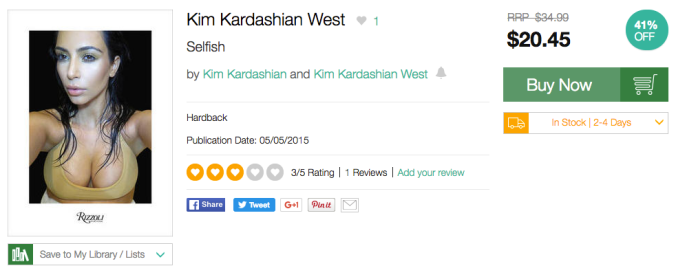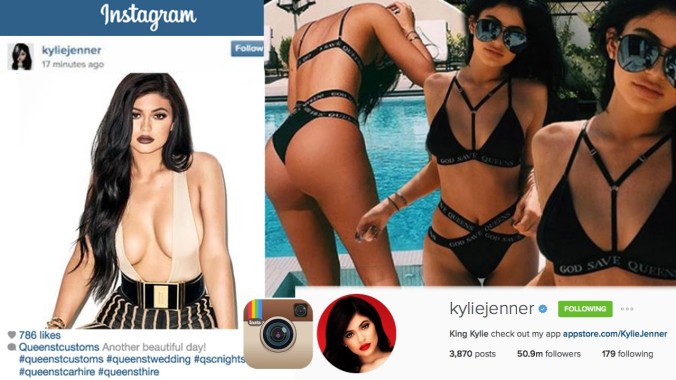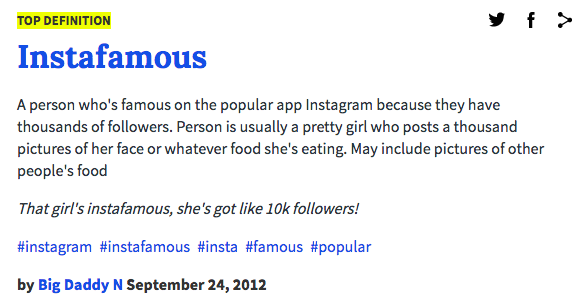Googling the word ‘selfie’ will give you about 843,000,000 results in 0.55 seconds. From what was once just the simple task of taking a picture of yourself, to what is now being touted as a “global phenomenon” the humble selfie has grown to new heights.
But it’s easy to see why. When you have people from all walks of life taking, posting, and in some cases profiting, from just a simple image of their face, people who are ‘anti-selfie’ are quickly becoming the minority.

‘Selfish’ by Kim Kardiashian West, on sale now at Book Depository! Source
Why is it then that so many people seem to be against the selfie? Some will say this is because it triggers a moral panic around the idea of selfie culture. “In the language of sociology, pathology-based rhetoric about selfies tends to resemble what Stanley Cohen (2002) calls “moral panic.” As Cohen points out, moral panic tends to heighten when a particular media form or practice is adopted by young people, women, or people of color.” (Senft and Baym, 2015) As much as I hate to say it, this is almost a perfect description of the selfie and the politics surrounding it.
The moral panic surrounding selfie culture does not seem to be particularly targeted at the more classic head and shoulders shots, which now seem to be the more commonly accepted selfie (as long as there is no duck face. Lord help us if you pout even a little bit, you out-dated attention seeker). It is, however, more targeted at the way celebrities promote themselves. Often posing in highly sexualised ways and mimicking, or creating, the latest selfie trend circulating on Instagram (for example, see “belfie”). Social media, and the way (young female) celebrities use it will often be quickly followed by several news pieces about how they’re a bad influence and destroying polite society.

Really, how could I write about Instagram without at least referencing Kylie Jenner? Source
Is it always just vapid self-promotion though? There are many who would argue for this, and while you can easily say that people and public figures like the Kardashians, various Instacelebrities (the “instafamous”), and even high-ranking politicians will prove this point; there are many other uses for the humble selfie. Selfie centred activism and attempts to raise awareness for social issues have found a lot of traction online, through social media platforms like Twitter, Facebook and Instagram.

Thanks Big Daddy N! Source
In North Carolina early 2016, a controversial bill restricting trans individuals from using the bathroom of their self-determined gender sparked a stream of trans people posting photos of themselves, often in public bathrooms, highlighting the absurdity of the bill, and other bills like it being discussed across the US. Many of these images quickly went viral and spread globally online and on social media, and in turn, raised more global awareness than many could have expected.

And while the protest received it’s fair share of criticism, the response from the general public was overwhelmingly positive and supportive. So could it really be argued that these people are simply indulging their desire to express their vapidity and self-obsession, or is it more likely that through the medium of this generally frowned upon notion of documenting ourselves, they were actually working for the greater good of a cause?
The list of selfie activist movements can go on. From selfies raising awareness for cancer, to mental health and promoting body positivity, to political movements, selfie activism is quickly becoming a large part of social involvement in modern society. The selfie is no longer just about promoting the self. There are so many more uses for a simple photo of your face than just the creation of your personal brand. And while there is no doubt that the selfie and social media has firmly become the most useful tool someone can have when it comes to self branding, it’s easy to see that there is so much more to it than just that.
So with all this good, can selfies really be all that bad?

Me being thoroughly pro-selfie (P.S. Follow me on Insta)
Reference
Senft, T. and Baym, N. (2015). What Does the Selfie Say? Investigating a Global Phenomenon. International Journal of Communication, 9.